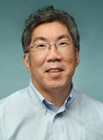Andrey Shaw, M.D., the Emil R. Unanue Professor of Immunobiology in the Department of Pathology and Immunology at Washington University School of Medicine in St. Louis, has been named an investigator of the Howard Hughes Medical Institute (HHMI).

Shaw was one of 15 researchers selected nationwide. More than 200 physician-scientists applied for this year’s competition, which was focused on researchers who probe basic biomedical questions in innovative ways that help rapidly improve patient diagnosis and care.
“I’m very pleased and honored to be selected for this prestigious appointment, which will provide a tremendous boost to our research programs,” says Shaw, who is director of the Division of Immunobiology.
As an investigator, Shaw will remain at Washington University. His laboratory there will be supported by HHMI. The initial term of the new appointment is five years; it is renewable after review. HHMI has committed $150 million to support of the 15 new investigators during their initial term.
HHMI selected Shaw for his work with podocytes, cells in a kidney structure called the glomerulus that filter the blood to make urine. He came to the kidney by way of studies of immune cell interaction. In 1999, Shaw found a gene he had identified in immune studies was essential for normal podocyte function. Loss of the gene led to kidney failure in mice. Now his lab is involved in a complex search for other genes that are essential to podocyte function and may as a result also be linked to kidney failure.
“Our big goal is to identify as many of these genes and their role in susceptibility to renal failure as possible,” Shaw said.
Shaw obtained his medical degree from Columbia College of Physicians and Surgeons in New York City. Prior to his arrival at Washington University, he did his residency and postdoctoral training in the Department of Pathology at Yale University.
HHMI is a non-profit medical research organization that ranks among the nation’s largest philanthropies. Its principal mission is conducting basic biomedical research, which it carries out in collaboration with more than 60 universities, medical centers and other research institutions throughout the United States. A total of 291 HHMI investigators, along with a scientific staff of 2,200, work at these institutions in Hughes laboratories. HHMI’s headquarters are located in Chevy Chase, Maryland, just outside Washington, D.C.
HHMI investigators include both basic researchers investigating fundamental biomedical principles and physician-scientists like Shaw. This year’s competition for investigator appointments was the second to focus exclusively on physician-scientists.
“These 15 physician-scientists are changing the way we think about and treat a variety of diseases,” said HHMI President Thomas R. Cech. “The impact of their research is already being felt by people suffering from malaria in Africa, by those with post-traumatic stress disorder in the United States, and by people worldwide with leukemia or lung cancer. As a group, they have demonstrated extraordinary creativity and innovation.”
Shaw’s appointment brings the number of Washington University faculty with appointments as HHMI investigators to seven. The other investigators are: Daniel E. Goldberg, M.D., Ph.D., professor of medicine and of molecular microbiology; Eduardo A. Groisman, Ph.D., professor of molecular microbiology; Kenneth M. Murphy, M.D., Ph.D., professor of pathology and immunology; Helen Piwnica-Worms, Ph.D., professor of cell biology and physiology and of medicine; J. Evan Sadler, M.D., Ph.D., professor of medicine and of biochemistry and molecular biophysics; and Wayne Yokoyama, M.D., professor of medicine and of pathology and immunology.
Washington University School of Medicine’s 2,100 employed and volunteer faculty physicians also are the medical staff of Barnes-Jewish and St. Louis Children’s hospitals. The School of Medicine is one of the leading medical research, teaching and patient care institutions in the nation, currently ranked fourth in the nation by U.S. News & World Report. Through its affiliations with Barnes-Jewish and St. Louis Children’s hospitals, the School of Medicine is linked to BJC HealthCare.